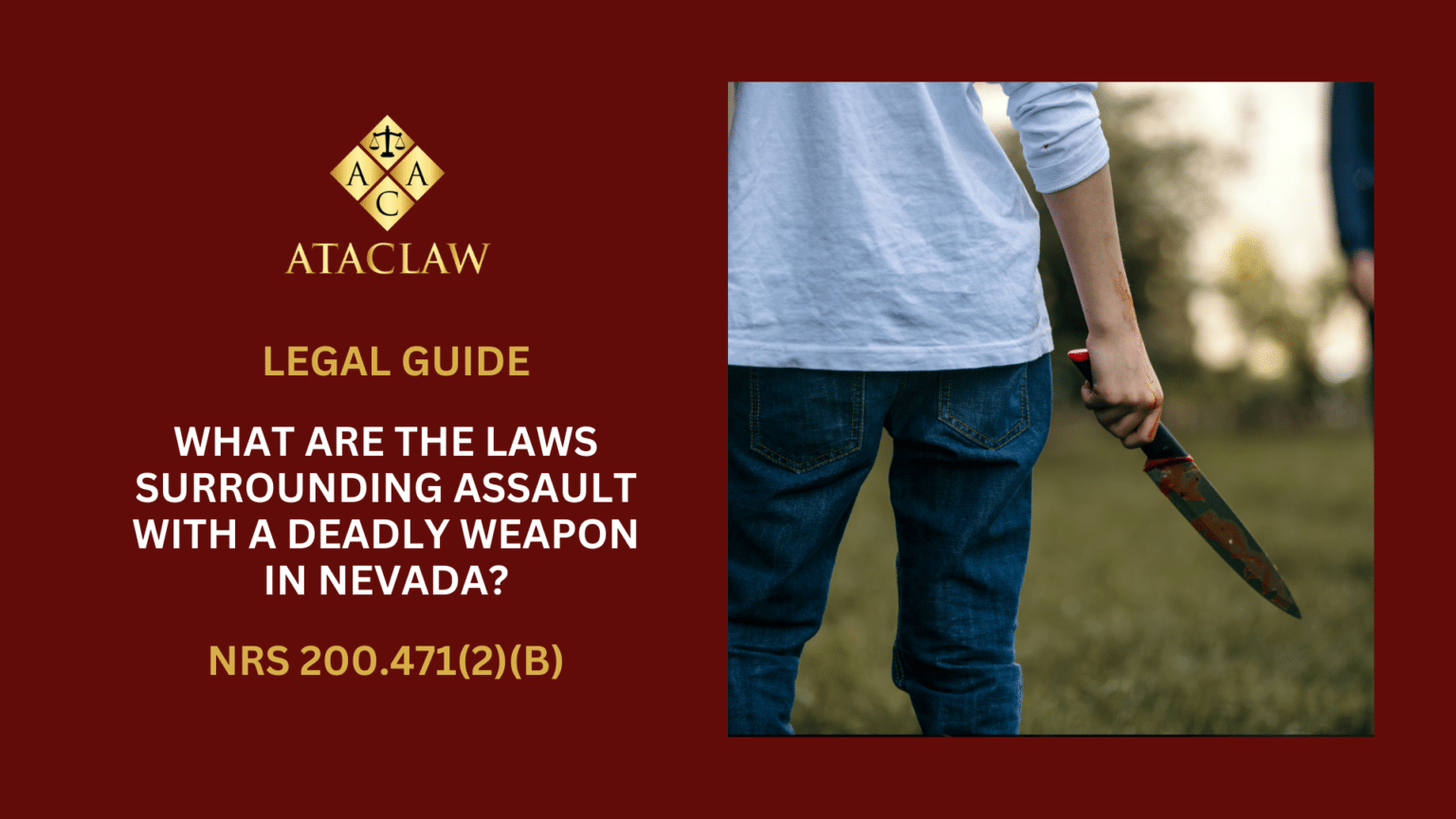Nevada Revised Statute 205.240 outlines petit larceny as the act of intentionally stealing property valued under $1,200.00 without the consent of the owner. It’s a term that often pops up in discussions around minor theft incidents, distinguishing itself from its more severe counterpart, grand larceny, by the value of the property taken. Recognized as a misdemeanor under Nevada law, this offense can lead to significant penalties, including up to six months in jail, fines reaching $1,000, and the requirement to make restitution to the victim.
The consequences of petit larceny in Nevada emphasize both punishment and rehabilitation. Prosecutors might consider dismissing charges if the accused agrees to certain conditions. These conditions often include paying the imposed fine and making full restitution to the affected party. Moreover, completing an “alternative sentencing” program, like Petit Larceny School, could also be a stipulation for leniency. This approach underscores Nevada’s emphasis on corrective action alongside legal penalties.
What is Petit Larceny and How Does it Differ from Other Theft Crimes?
Petit larceny, also known as petty theft, occurs when an individual deliberately takes property belonging to someone else without permission, and the property’s value is under $1,200. This kind of theft often involves several common scenarios:
- Shoplifting items from retailers, such as Walmart,
- Taking furnishings or linens from a hotel or motel room after a stay,
- Abducting someone’s pet, like a dog, cat, or bird, or
- Removing items such as a shed or fence from a neighbor, thereby transforming their real property into personal property.
To determine the value of the stolen items, courts may incorporate expert opinions or market research. If the value is assessed higher than it should be in your case, legal defenses, such as those provided by ATAC Law, can challenge this assessment. The value attributed to the stolen items in court is always the highest reasonable estimate.
- Petit Larceny vs. Other Theft Offenses
The differences between petit larceny and other theft-related crimes highlight the unique nature of each offense. - Grand Larceny distinguishes itself from petty theft by involving items valued over $1,200. It’s considered a serious crime, always classified as a felony with the potential for a state prison sentence.
- Larceny from a Person, or pick-pocketing, involves stealing directly from someone without resorting to force or threats. Unlike petty theft, the victim might be unaware of the crime, and this offense is always treated as a felony.
- In contrast, Burglary requires entering a structure intending to commit theft or other crimes, always resulting in felony charges, unlike petty larceny, which can occur outdoors and without premeditated intent.
- Grand Larceny of a Firearm in Nevada treats the theft of a gun as a felony, irrespective of the firearm’s value being less than $1,200.
- Similarly, Mail Theft, regardless of the stolen mail’s value, is classified as a category D felony, emphasizing the serious nature of these crimes compared to petit larceny.
What Are the Consequences of Petty Larceny in Nevada?
In Nevada, being found guilty of petty larceny, classified as a misdemeanor, can lead to significant legal consequences and long-term impacts on one’s life. The penalties for this offense include:
- Fines reaching up to $1,000, and/or
- Imprisonment for up to six months.
- Moreover, the court might mandate restitution payments to the victim, with the total amount reflecting the value of the stolen property.
However, the repercussions extend beyond just the criminal penalties. A conviction for petty larceny can severely limit an individual’s future opportunities in various aspects of life, including career, education, and housing. Employers, educational institutions, and landlords often hesitate to associate with individuals who have a theft-related conviction on their record, potentially leading to significant lifestyle and opportunity limitations.
Furthermore, engaging in theft while armed or as a participant in an organized retail theft ring elevates the offense to a felony level, with even more severe consequences, including longer prison terms. This is particularly the case if the theft involves making others feel physically threatened.
Can Petty Larceny Affect Your Immigration Status in the U.S.?
While petty larceny is considered a crime of moral turpitude, it generally does not lead to deportation due to the “petty offense” exception in immigration law. However, immigration regulations can be complex and are subject to change. It’s crucial for non-citizens charged with petty larceny to consult with a criminal defense attorney promptly, aiming for a charge dismissal to avoid potential immigration consequences. ATAC LAW can provide the necessary legal assistance.
Can Petty Larceny Charges Be Dropped or Reduced in Nevada?
If an individual is facing a first-time petty larceny charge in Nevada, there is potential for the judge to dismiss the case under certain circumstances. A common outcome in such instances involves the accused agreeing to a “submittal” to the charge, which signifies an arrangement with the prosecution where the charge is set to be dropped provided that specific conditions are met:
- Payment of a court-imposed fine,
- Restitution to the victim, covering their losses, and
- Completion of an approved “Petit Larceny School.” This program educates participants on the repercussions of shoplifting and points toward community resources that can assist with preventing future incidents.
Should an individual fail to fulfill these stipulations, they are at risk of being formally convicted of petty larceny and may face incarceration as part of their sentencing.
In the context of the Las Vegas Municipal Court, participation in the Petit Larceny Program (PLP) has associated costs of $225. The program can be completed through one of two options: by attending four group counseling sessions, each lasting two hours, or by taking a comprehensive, single-day class that runs for eight hours.
If an outright dismissal of charges isn’t on the table, there might be a possibility of negotiating with the prosecution to amend the charge to a different misdemeanor, such as trespass or disorderly conduct. These alternatives still represent misdemeanor offenses but are regarded more leniently in social contexts and bear less negative weight during background checks than a theft-related offense would.
What Are Effective Legal Defenses Against a Petty Larceny Accusation in Nevada?
Petty larceny charges in Nevada, especially those tied to allegations of shoplifting, are frequent matters handled by legal professionals. ATAC LAW has had considerable success in deploying several defense tactics to convince the court to drop such charges. Here are three practical defenses:
1. No Actual Theft Occurred
Simply touching or handling merchandise does not equate to theft.
- Consider this scenario: During a visit to a store, two friends, Alex and Blake, engage in a frivolous challenge that involves Alex considering the theft of a product. Alex touches the item tentatively but ultimately decides against taking it. Regardless, an attentive employee, misinterpreting the situation, informs law enforcement of a theft.
- In this instance, if Alex were to face petty larceny charges, the defense would argue that no theft occurred since Alex only touched the product like any shopper might and did not actually take it away with the intent to steal.
- In contrast, had Alex concealed the item with the intention to steal before changing her mind, the situation could potentially result in a conviction, as the act of hiding the product reflects the intent to commit theft, which remains irrespective of the subsequent change of heart.
2. Absence of Intent to Steal
Considering that petty larceny requires the intent to steal, one cannot be convicted without conclusive evidence of such intent.
- Take the case of Dana, who, while shopping, becomes engaged in a phone conversation and exits the store with an unpaid item unintentionally. If this absent-minded action is mistaken for theft, an effective defense would argue that Dana had no criminal intent since the act was a genuine oversight, negating the basis for a petty larceny charge.
3. A “lack of intent” argument often holds weight because a prosecutor’s task to definitively prove the accused’s thoughts at the time of the incident is extremely challenging. Providing plausible reasons for the accused’s oversight due to distraction or an urgent situation can undermine the prosecution’s case.
4. Ownership of the Alleged Stolen Property
False accusations of theft may arise concerning property that rightfully belongs to the accused.
- Imagine a disagreement between former partners, Casey and Drew, who co-own a pet. Drew retrieves the pet for a vet appointment, leading a resentful Casey to report a theft to the police.
- If Drew faces petty larceny charges, providing proof of joint ownership of the pet, such as documentation or messages, should clarify ownership rights and lead to the dismissal of the case.
- Ultimately, owning the property in dispute cannot result in a petty larceny conviction. Defense strategies frequently involve presenting tangible evidence like purchase receipts, eyewitness testimony, or documented communications that establish the accused’s ownership rights.
How Long Must You Wait to Seal a Petty Larceny Record in Nevada?
In Nevada, individuals who have a petty larceny conviction can seek to have their records sealed one year after their case has concluded. Meanwhile, those who have had their petty larceny charges dismissed without a conviction are eligible to apply for a record seal immediately.
On the other hand, if you’re convicted of a more serious charge, such as grand larceny, the conviction must remain on your record for a minimum period of five years before you can submit a request for sealing. ATAC LAW diligently works to have grand larceny charges dismissed or reduced to petty larceny to expedite the record-sealing process for their clients.
Proactively sealing your criminal record is advisable, as it can prevent long-term harm to your personal and professional reputation, reducing potential roadblocks in your career and other areas of life.
What Are Different Types of Theft Crimes Under Nevada Law?
In Nevada, various actions constitute theft offenses, each with its unique definition:
- Bait-Purse Theft: In certain instances, law enforcement may use “bait” purses or wallets in public areas to catch potential thieves. Acquiring these intentionally abandoned items can lead to theft charges.
- Possession of Stolen Property: Holding onto property while being aware that it has been stolen is illegal in Nevada.
- Handling Lost Property: If you come across lost property, Nevada law obligates you to make reasonable attempts to locate the property’s rightful owner instead of keeping it for yourself.
- Robbery: This crime involves forcibly taking another individual’s property, often accompanied by the use of threats. An incident where a perpetrator forcefully takes cash from a store employee is an example of robbery.
- Grand Larceny of a Motor Vehicle: Often referred to as “grand theft auto,” taking a car or motorcycle is always treated as a felony in Nevada, irrespective of the vehicle’s value.
- Embezzlement: This theft occurs when a person takes property they had lawful access to initially. Failing to return a rental vehicle by the agreed-upon time can be regarded as embezzlement.
If you find yourself entangled in allegations of petit larceny, it’s imperative to seek knowledgeable legal guidance. At ATAC LAW, we pride ourselves on our thorough understanding of Nevada’s property theft laws and are committed to providing robust legal representation. Facing the legal landscape can be challenging, but with the right team by your side, advocating for your rights and exploring all possible defenses becomes a realistic pathway to resolving your case.
Petit larceny in Nevada, while considered a misdemeanor, carries penalties that can significantly impact your life. Whether it’s a misunderstanding, a momentary lapse in judgment, or if you’re unjustly accused, knowing the law and having expert legal representation is essential. ATAC LAW is dedicated to offering comprehensive legal advice and representation to those facing such charges, ensuring that your side of the story is heard.
For further legal assistance and to discuss your case with an expert, don’t hesitate to contact ATAC LAW.




